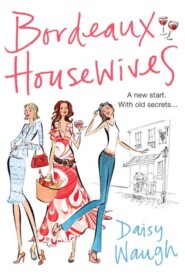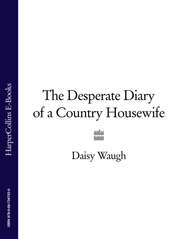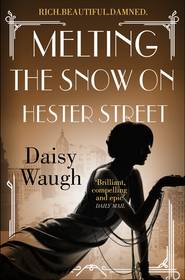По всем вопросам обращайтесь на: info@litportal.ru
(©) 2003-2024.
✖
Honeyville
Автор
Год написания книги
2018
Настройки чтения
Размер шрифта
Высота строк
Поля
‘I never have,’ she said bluntly. ‘But my aunt goes out to the little schoolroom at Cokedale every Friday, to help them with religious instruction. Or she used to. Before it all became so troublesome out there.’
‘It’s going to get worse now,’ he said. ‘Lippiatt changes things. You watch. It’s going to turn, now.’ He said it with a grim sort of relish. His friend nodded sagely – and I remember I felt a grim sort of chill. He was right. You could smell it – the turning point. The cold-blooded murder of a Unionist, right there, on North Commercial Street. Lippiatt’s death would change everything.
But Inez didn’t seem to be listening. She prattled on without missing a beat. ‘Aunt Philippa says it was quite the nicest little school building she’s ever visited, and far nicer than St Teresa’s here in town, which by the way I attended … And she says the company provides the sweetest little homes for the workers that are as cosy as can be. And each little family has its own little yard. And plenty of people grow their own vegetables and keep chickens and I don’t know what else. And I know what you are going to say. You are going to say that it’s perfectly all right for Aunt Philippa, who arrives at Cokedale in her motorcar and leaves again in a motorcar and goes home to a lovely house with two great furnaces and servants and honeycake for breakfast and all that – Well, I’m not saying anything about that …’
He laughed – rather gently, I thought, all things considered.
‘Aunt Philippa says she simply doesn’t know what the workers are complaining of.’
‘Well,’ he said, ‘I’m going to drive you out there, Miss Inez. How about that? I’m going to drive you out there tomorrow and you can see for yourself … The numbers of men who roam about the place with half their limbs missing. Because of just how nice and cosy it is down there in those coalmines. And the women who have to beg and borrow just to feed their own children. You think the company cares for its people? They don’t give a damn for the people. They own the people. And, by the way – if they cared so much about their damn people, perhaps you can explain to me why they send their Baldwin-Felts thugs to murder them, in cold blood, right here on the sidewalk in front of everyone.’
‘You’re getting the wind behind you, Lawrence,’ I interrupted. ‘Watch out now, or you’ll blow us all the way home.’
‘And excuse me for saying,’ Inez said, taken aback by his vehemence but – to her credit – not silenced by it, ‘with respect and all: Captain Lippiatt wasn’t employed by the company. He wasn’t one of their people. That is … He was quite the opposite.’
‘He was for the miners,’ O’Neill replied.
‘Oh god,’ I sighed. ‘I think it’s time for my bed.’ I’d spent too many hours of my life, listening to men windbagging about the rights and the wrongs of organizing unions, and the rights and wrongs of company towns – and I was sick and tired of the whole subject. If you asked me – but nobody ever did. I wouldn’t have told them anyway. It was none of my business.
Inez didn’t share my feelings. That much was clear. She was leaning towards Lawrence, preparing to continue the argument, when an elderly gentleman in a worn wool suit approached the table.
‘Miss Inez?’ he said.
She looked up at him. Her face fell. ‘Oh no,’ she moaned. ‘Not now. Please, Mr Browning. Can’t you just pretend you didn’t see me?’ She belched. ‘I’m just about getting started.’
‘I’ve been looking for you here, there and everywhere,’ he said. ‘Your uncle’s waiting outside in the automobile. If you don’t come out directly, I dare say he’ll come in and haul you out by your ears.’ The old man glanced around the table: two Union men, one blood spattered – and one old hooker: drunk as lords, every one of us …’I think you had better come with me.’
With a great, childlike sigh, she set down her glass and stood up.
‘What?’ cried O’Neill. ‘You’re running off? Just as it was getting interesting?’
‘Well, you can see that I have to.’ They looked at each other, and I swear – whatever was going to happen between them was sealed, right there and then. ‘But it was fun, wasn’t it?’ she said. ‘Can we do it again?’
‘Come to the Union offices. You know where they are?’
‘Not exactly.’
‘Well – see if you can’t find out. Ask for me.’ He smiled at her, a liquor-leery smile, and I don’t believe he was thinking much about the iniquities of company towns just then. ‘I’ll be around the next few days, Miss Inez Dubois. Maybe we’ll motor out to the Forbes camp together …’
She was about to leave, but she turned back. ‘And I haven’t forgotten, Dora,’ she said, waggling a single, dainty finger. ‘I’ve not forgotten about the singing lessons, you know.’ For a second I couldn’t even think what she was talking about. ‘Thank you for a beautiful evening.’
‘I enjoyed it,’ I said.
‘It started badly though, didn’t it?’ she said vaguely. ‘Lawrence O’Neill, I am very sorry about your friend.’
‘Aye,’ he said solemnly. ‘Thank you.’
‘Well. I had better leave. Thank you all. Dora, thank you …’ She was swaying, possibly on the verge of tears again. The old man attempted to take her elbow, but she pulled it away. ‘It was the best night of my life.’
She weaved her way through the long bar, the old man protective and irritable beside her. She was a fish out of water. A fish that had swallowed far too much sauce … I see her now, reeling meekly beside the old man. There were snickers and catcalls from either side, and of course she must have heard them. She must have known what a figure she cut. And yet, there was something beyond pride, something grand and oblivious as she made her way through the room. She looked happy and alive – and carefree, and bold and young. And she reminded me of what it was like to be someone who still believed – oh, I don’t know – that life could ever be more than a thing to be gotten through.
Lawrence O’Neill, I think, watched her leave and was filled with a different sort of regret.
It was a private transaction between the two of us – strictly against Plum Street Parlour House rules. I went upstairs with him, to his rooms at the Toltec, and woke before dawn in a state of shock. I had slept with a client still beside me. I took the cash from his wallet, and left without saying goodbye.
5 (#uf0dd83b0-f101-590f-aa7e-a8a3236d793b)
I looked out for her, but I didn’t see Inez for some time after. I often wondered how her aunt had reacted when she’d rolled home that night, reeking of liquor, and I took great pleasure in trying to imagine the ride back from the Toltec, Inez and her Uncle Richard side by side, Inez belching away, jabbering about politics. That she didn’t appear at the Union offices (which fact I learned from Lawrence O’Neill when I met him on the street a week or so later) seemed to illustrate that our evening together was nothing more than an amusing deviation for her.
Inez had melted back into her parallel world of educational talks and pious ladies’ tea parties, and I pitied her for it. To my surprise, I also missed her. I considered seeking her out at the library, and once even made it as far as the library steps. But when I glimpsed her at the desk, sober and prim, gossiping with the doctor’s wife, I lost my nerve and turned back home again. I suspected that, were we to meet at the stocking counter of Jamieson’s Department Store one day (as well we might), she would not even acknowledge me.
Meanwhile, as O’Neill had predicted, Lippiatt’s murder was the talk of the town, and the talk of our visitors to Plum Street. Tempers on both sides of the argument were hot and high, and there was no meeting point between them. Only a few months earlier, up in Colorado Springs, so one of my clients informed me, Lippiatt had been found guilty of unspeakable violence against some poor young woman, and there had been moves to excommunicate him from the Union altogether. Now, of course, it was a different story. His death became a focal point. He had died a Union martyr. At the Union conference that weekend, Lawrence O’Neill and his pals wore black crepe bows on their shoulders in remembrance of his heroism. But they hadn’t watched him, as I had, returning to the fray with his handgun. They hadn’t heard the bloodlust in his shout as he waved his weapon at the two detectives … Any more than they had watched the two detectives, standing side by side over his dying body, and shooting him again – tearing a hole through his throat and then his chest.
But I had been living at Plum Street seven years by then, and I’d learned when to share my opinion and when to keep it to myself. So I kept my mouth shut. They were all fools to me.
The Plum Street Parlour House was situated in an imposing, four-storey red-brick house, which stood apart from the lesser buildings on either side of it. It was handsome: there were steps leading to the front door, and before it was a porch with ornate wrought-iron banisters. There was an electric light, set in a three-foot-high candle carved in stone by the side of the door and, on the door, a vast and shiny brass knocker. Everything about the place offered up the same message: the smell of perfume and burning opium that seemed to leak from the bricks, the shine and splendour of our brass knocker, those flamboyant railings, the rich red and gold drapes at the windows, the sparkling chandeliers within – not even a child could have been in any doubt as to the building’s function. There were other brothels, even on our street, and in handsome houses too. But ours stood out. It glowed with lubricious promise. We were the most exclusive whorehouse in town, and those of us who lived and worked in it took a certain amount of pride in the fact.
There were eight of us working girls living at Plum Street back then. In addition we had Simple Kitty greeting at the front of house, two more housemaids, two kitchen maids, a cook and a barman, a musical director, who played piano in the main parlour and organized musicians for the ballroom each night. There was also Carlos, the man-of-all-work. And overlooking us all with her beady eye and the tightest pocketbook in Colorado, there was Phoebe: once a working girl herself, now Madam to the most popular parlour house in Trinidad. Unlike me, she had learned early on how to keep hold of her money and get the hell out of the game.
Phoebe must have been among the wealthiest individuals in town, but there was never a time when she wasn’t on the lookout to be making more for herself. Any chance for another buck, Phoebe would be onto it. She’d developed a hundred sly ways to cheat the johns so that they wouldn’t feel it, or didn’t care. She used to cheat us girls too, charging interest on debts we’d run up here and there. In the early years, I hadn’t used to mind so much. I was grateful for such a comfortable place to live. But more recently my attitude had changed. After so many years on my back, splitting my earnings with Phoebe and having nothing whatsoever to show for them, I had been trying, at last, to get myself in hand. I had eased up on the laudanum. Eased up on the liquor too. And I was beginning to keep some of my money back.
One of the girls must have told Phoebe I was trying to get myself together, and she didn’t like it one bit. At thirty-seven years old, I wasn’t the youngest girl in the house, and maybe I wasn’t the prettiest either, but I knew what I was doing. I pulled in more than my fair share of business and Phoebe wasn’t ready to lose me.
The morning they shot Lippiatt she had presented me with an unpaid receipt from a dressmaker who’d been dead for two years. Maybe it was genuine – I had been drinking a lot two years before then, and the laudanum would have been playing its part. In any case, I had no way to check up on it. Even if I had, there wasn’t much I could have done about it. Phoebe held the town in her pocket. If she decided I owed her – well then, I owed her. For all its comforts and luxuries, Plum Street was a jail of sorts. Leaving it was never going to be a simple business …
As I sit here twenty years on, at my little desk overlooking the warm Pacific Ocean, it seems the greatest of miracles to me that I ever did.
But life at Plum Street had its compensations. For a few years I used to think that William Paxton was one of them. He owned a gun store in town, and a few others upstate, and from the frequency of his visits to see me, I assumed they made him a good living. He’d been my regular client since his wife was sick and dying, and he was a decent man: quiet, gentle and generous.
He used to talk to me about his wife when she was dying and, after that, when his grief had eased, about all sorts of things. Sex and music and … well, sex and music, mostly, which were our interests in common. Maybe a little bit about real estate and automobiles, too. In any case, we became friends. I told him something about my life before I came to Trinidad – not all of it true, of course. But I told him how I came from England, the child of two Christian missionaries, one long dead, the other long since returned to England – which was true. And I told him how, before circumstances changed, I used to travel the Western circuit with a group of popular musicians and stand before a full hall and sing and dance, and that once, long ago, I was quite a music hall sensation. Which was also true, so far as I recall.
He bought me a little, old-fashioned harpsichord – heaven knows how he found it – which I kept in my rooms (Phoebe said a piano would have made too much noise), and we used to sing together; or, more often, I would sing for him. I told him, as I told Inez, about how one fine day, when I was too old for this game, I wanted to open a little singing school, perhaps in Denver. He pinched me and laughed.
‘Don’t be absurd, Dora,’ he said, and I know he meant it kindly. ‘You’ll never be too old for this game. You’ll be adorable until the day you die.’
He used to tell me how much he cared for me. And I believe he did. Occasionally, when we were alone together, he used to mutter tender things; and I am convinced that in the last few weeks and months, before Lippiatt’s death seemed to change everything in our little town, his feelings for me were stronger than ever. He said to me, a month or so before Lippiatt died, that he was ‘missing the comfort of a wife’, and on another occasion, around the same time, I remember he said: ‘I want to behave to you as a gentleman should.’
Inevitably, perhaps, I played the words over until they meant what I wanted them to mean: something vast and precious. And I began to believe that he loved me and that I loved him.
Well, he came to see me in the week after Lippiatt’s death. The streets were still cluttered with angry delegates, and the sheriff’s men roamed among them, waving their guns. William sought me out at Plum Street in the midst of it, earlier in the day than was usual. If he had been anyone else, I might have kept him waiting. But William was different, and when I came down to the ballroom I greeted him warmly – too warmly. Beady Phoebe swept across the room and shot me a warning look. It was against house rules to form strong attachments. ‘For your own protection,’ she used to tell us. ‘I don’t want my girls getting their hearts all smashed up. Bad for business.’
‘No heart left to smash,’ I used to say.
But afterwards, I knew I should have listened. Our heads were side by side on the pillow … and I wince to remember the affection I felt as I looked across at him. He glanced at me, sheepish as hell, gave a tug on his moustache, which he never did before and, for the maddest moment, because he looked so terribly ill at ease, I was certain he would speak the words. He said:
‘Dora, I’ve been meaning to mention …’
‘Mention what, William?’











